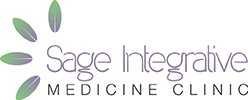Do probiotics really help my gut heal? Do I really need to take a probiotic to be healthy? What kind of probiotic is best? Can’t I just eat foods instead?
These are some of the most common questions I receive from my patients.
Well, I’m here to tell you that not only are they helpful for your gut, but we now know that they can impact your health in many amazing ways. And most people will benefit! All except one group – which I’ll talk about soon.
Probiotics are ‘good’ bacteria that have been found to be beneficial for our health.
So what conditions have been shown in the research to be helped by probiotics? Such conditions such as bloating, abdominal pain, obesity, diabetes, asthma, eczema, ADHD, autism, depression, and Parkinson’s disease all have shown to improve significantly. Significantly.
You might think, how can good bacteria help to prevent or improve diabetes? Or Parkinson’s disease? Or to lose weight? We are still searching for the full answer, but a few things are clear. They encourage healing, reduce toxicity, reduce the presence of other pathogenic bacteria and yeast, and bind to toxins.
What type is the most beneficial? The best combination is a multi-strain probiotic, with 15 or more strains (types of bacteria) listed. The higher number of colonies (CFUs) is also beneficial, and its best to look at least 15 billion colonies, however, 50 or 100 billion can work even better to support your body.
I do hear from many patients that they would like to support their bacterial health with only food. And feeding your bacteria healthy food is always a wonderful idea, but you will not achieve the same level of bacteria through eating. For instance, kefir yogurt contains millions of bacteria, not billions. But that doesn’t mean you can’t do both!
What are the best foods to support your bacteria?
The best approach is to focus on whole foods, add seeds and nuts, and fermented foods such as sauerkraut, as well as resistant starches such as potato starch, which is digested by the good bugs (not us), and helps them to grow. They are also improved by avoiding processed carbs and sugars, alcohol, and a low-fiber diet.
Omega-3 rich foods such as cold-water fish (eg, wild salmon), walnuts, pecans, flax seeds and monounsaturated fats such as avocado, will help to improve the good bacteria, lower inflammation, and increase weight loss. MCT oil and coconut oil will also help to reduce the ‘bad’ bugs, and dramatically reduce inflammation in the gut.
Omega-6 rich foods, such as high levels of veggie oils like sunflower, soy. and canola will promote the growth of ‘bad’ bugs that cause weight gain and disease.
Medications that can negatively affect your good bacteria are the use of antibiotics, acid-blocking medications (eg, Prilosec, Omeprazole), and NSAIDs (eg, ibuprofen, Advil).
Finding alternatives to these can definitely help your gut.
As well as alternatives to NSAIDs for pain relief:
Now, remember, probiotics are not for everyone. If you are experiencing excessive bloating and gas, along with other gut symptoms, you may have a condition known as SIBO – a type of bacterial overgrowth in your intestines. In this situation, taking probiotics is like putting fuel on the fire, and will make the symptoms worse. If this sounds familiar, SIBO can be tested for, a test we can easily give to our patients.
In fact, we can also culture out many of the ‘good’ bacteria and look for the ‘bad’ bacteria to help guide us on how best to support the gut and your symptoms, along with ‘bad’ yeast and parasites.
If you would like to dive in and explore how to best heal your gut, we would love to see you! You can reach us at (425) 835-0359 and at www. Sagemedclinic.com.
Dr. Angila Jaeggli
Books on Probiotics and a Healthy Gut:
The Good Gut
The Brainmaker
The Microbiome Solution
The Gut Balance Revolution
